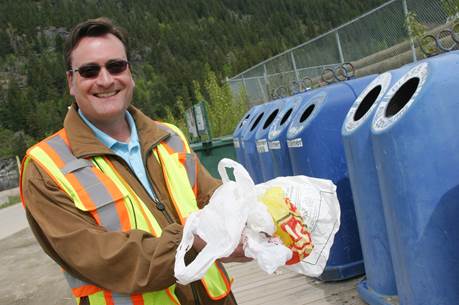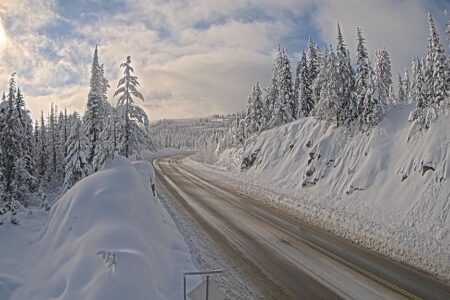Largely status quo for local recycling as new system comes into place
New rules around recycling come into play on Monday across the province, but it will be business as usual in Nelson and surrounding areas as local governments here are keeping existing systems largely in place.
As of Monday (May 19), the burden of dealing with recyclables in the province switches from a local government responsibility to the businesses that produce them – through a private company called Multi Material BC (MMBC) that will now deal with much of the recycling across the province.
Last fall, local governments across the province were given the choice between continuing to provide recycling services as they currently exist and be paid a fixed, per-household rate by MMBC to do so, or to let MMBC take over recycling services in their communities.
Both the City of Nelson and the RDCK debated the decision and came to different conclusions, with Nelson going with MMBC and the RDCK rejecting the program. But things will remain much the same when it comes to recycling in Nelson, though residents will see some changes in what can and can’t be put in their blue bags.
Kevin Cormack, city manager with the City of Nelson, says the only changes residents will see starting on Monday is that plastic grocery bags will no longer be able to be put in with recycling, while things like milk cartons, plastic plant pots and aluminum foil packaging will be added to the list of recyclables.
Otherwise things will remain much the same, he noted.
“We’ll collect blue bags the way we’ve always collected them,” Cormack says, adding that the changes will yield a positive effect for local taxpayers due to MMBC picking up the tab for recycling services.
“For us it’s a positive because currently our taxpayers are paying the cost of collecting that material,” he noted. “Under the new program, industry will pay that cost and we’ll receive an amount to do that collection.”
He added that the City of Nelson has a very efficient system for collecting recycling, using the same truck it does for collecting garbage, so great dollar savings are possible.
“It’s great news for the city,” he says. “We’re very well positioned to take advantage of this program.”
The RDCK elected not to participate in the MMBC program because the financial incentives offered were less than it was then paying for the service – and also because rules set out by MMBC would require the regional district to do significant upgrades to recycling depots and staff them, at a cost in the hundreds of thousands of dollars.
Uli Wolf, general manager of environmental services says all RDCK recycling depots will keep operating at the status quo come Monday.
“Residents that utilizes RDCK recycling depots won’t see any changes when the MMBC program launches May 19,” Wolf said in a press release.
“RDCK depots will accept the same materials and continue to operate business as usual.
“The RDCK is not part of the MMBC program and will continue to provide uninterrupted recycling depot services throughout the region.”
Another party not on side is big business, such as nurseries, grocery stores and newspapers. They have warned the extra costs will threaten the viability of their operations and have also balked at the lack of accountability for MMBC, which is expected to take in $110 million annually in fees with little government oversight on how it is spent.
However, services in some parts of the regional district may see some changes.
Curbside programs in Castlegar, portions of Area H, I and J, are part of the MMBC service, while Kaslo and Nakusp are getting curbside programs for the first time through the MMBC program.
These areas may see some changes in what can and can’t be recycled, and information about that is available at www.recyclinginbc.ca or by contacting the Recycling Council of BC at 1-800-667-4321.
























